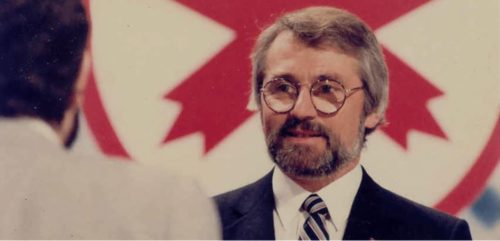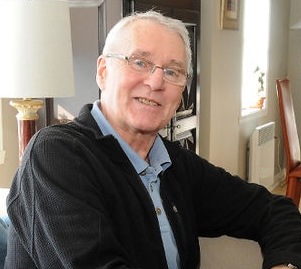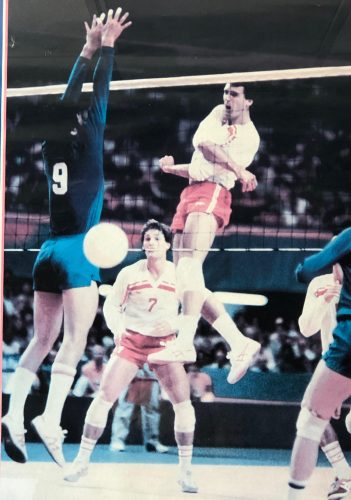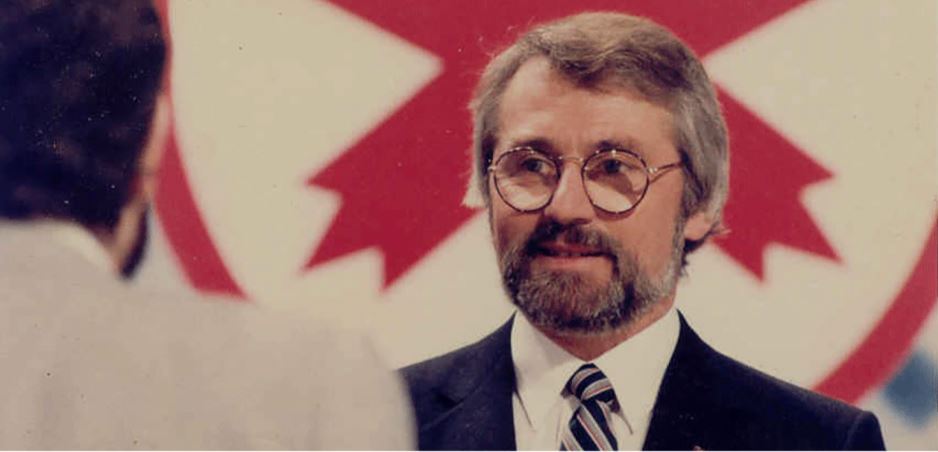For the love of volleyball: A conversation with Charles Cardinal

Charles Cardinal
Canada has been recognized internationally for the quality of its Long-Term Development resources, but still has a long way to go before coaches at every level of the Canadian sport system properly prioritize implementation, according to planning and periodization expert Charles Cardinal.
One of the original authors of the seminal Canadian Sport for Life—Long-Term Athlete Development resource paper but now retired, Cardinal spent his career championing the development of all players from an early age, rather than focusing on creating winning teams. But he feels yet more work needs to be done before this ideal can be realized.
“My laboratory was volleyball, and what I learned is when you try to change the way people do things the first thing you have to do is change their attitude. You may have the knowledge and you may have the skills, but until you change the focus on how to be more proficient at developing talent instead of focusing on the win-loss record, it won’t matter. And that’s something we’re still working to change in 2021,” said Cardinal.
“The way things are currently being done, players are identified as young as 12 as having potential to make the national team. But how many of the ones you identified actually make it there? Three to five percent. That’s incredible, and it shows that you can’t accurately predict who will be successful at 12, 16, 18 years of age up to the university level at that stage of development.”
The trouble is that youth coaches should be fostering a long-term love of the sport for the sake of health and well-being, instead of scouting talent in order to win games. The issue is compounded by how tournaments and games are currently being played in the Canadian system, with coaches primarily focused on ensuring their most talented players get court time rather than giving opportunities to all players. This works at cross-purposes with Cardinal’s ultimate goal, which is to have as many players as possible become engaged and active for life.
A Long-Term Development Acolyte for Many Sports
The over-emphasis on competition was something Cardinal saw firsthand throughout his multi-decade career, as he advanced from playing volleyball for the University of Ottawa to coaching, becoming a university professor teaching physical education, and then acting as a specialist with the Coaching Association of Canada and lecturer in countries all over the world. He was inducted into the Hall of Fame at Volleyball Canada in 2002 and Volleyball Quebec in 2008. In 2005 he was awarded the Geoff Gowan award for his lifelong contribution to coaching education, not only in volleyball but in a variety of sports with a focus on Long-Term Development.

Charles Cardinal
For Cardinal, his proudest career achievement was becoming one of the founding members of the Canadian Sport for Life movement led by Richard Way and buoyed by the visionary work of Istvan Balyi. He spent 12 years developing Long-Term Development frameworks for sport federations across the country, and saw the work Sport for Life was doing recognized internationally. However, he feels implementation within Canada has been slow compared to other countries.
“Go observe any practice, and you’ll see that the only thing they focus on is preparing the team and the athlete for the next competition rather than utilizing the practice to raise the levels of their individual skills. Every athlete, I don’t care if they’re on the national stage, they have weaknesses and the question is how much time do you spend on addressing those weaknesses?” he said.
“It’s like having a pitcher who can only throw a fastball — once you reach the higher levels you better have a fuller repertoire. So if you don’t improve the tactical decision-making and individual tactics of the athletes you work with, what kind of coach are you?”
According to Cardinal, there are coaches who understand this issue but the system isn’t properly set up to recognize their efforts. In particular, awards ceremonies reserve their accolades for coaches who have achieved competitive success rather than assessing their developmental impact on their players. He hopes this will change in the future.
Win one champion at a time
Though Cardinal is now retired, the work he did in the Canadian sport system continues to bear fruit. Sport for Life Board member Sylvie Béliveau worked closely with him for a number of years, and felt his idiosyncratic approach to implementing planning and periodization changes to the sport system made an impact in the lives of players, coaches and administrators.
“How many sponsors would not ask for a return on their investment? Charles was a mentor, a sponsor. He welcomed me, shared his knowledge and gave without expecting any return for his investment of time. The return is invisible. It exists in my work as a coach, coach developer and Long-Term Development champion. I can only imagine how many other people like me are out there,” she said.
“He used to tell me, when I faced adversity in implementing change: ‘win one champion at a time’ and I sure applied and saw the fruits of this. I have a bag full of other golden nuggets like this one. He was a role model for his ability to touch and impact people, for his pedagogy in delivering clear messages and his sense of humour. This to me is the definition of the art of being a consultant, a teacher and a leader.”

1984 Olympics
Sport for Life’s Director of International and Partnerships Tom Jones, who competed in volleyball at the 1984 Olympics, feels Cardinal stood out among other sport specialists. Jones recalls his easy-going attitude, and felt his insights were profound.
“Charles is one of the most fascinating and endearing characters in sport. A giant of Canadian volleyball, he’s been involved in national Board activities, athlete development, coaching, and high performance his whole career. He often accompanied national teams as their ‘chef de mission’, adding his trademark warmth, wit, and encouragement to all involved,” Jones said.
“Though a teacher and mentor in his own right, he seeks to humbly engage with and learn from others — making them feel valued and seen — while sharing his vast experience in ways that make him so approachable and interesting. During our 1984 Olympic run, he played a significant role in encouraging us to believe in ourselves and always give our best. I know him as a friend, mentor, and volleyball colleague extraordinaire.”
Cardinal himself believes his work can be boiled down to something really simple: “As a coach, it’s not what you know that is important; it’s how good you are at dealing with people.”
Charles Cardinal’s takeaways for coaches and athlete development specialists
Learn to Train stage – Prioritize skills development for all players, not just top performers.
Train to Train stage – Identify and address gaps in skills, and emphasize inclusion and enjoyment.
Competitive for Life phase of Active for Life stage – Prioritize pleasure and enjoyment of the game, team camaraderie.
*CORRECTION: In the original publication of this article, we erroneously referred to Charles Cardinal as Doctor. Despite the fact that Charles held a professorship at Montreal University for 26 years and acted as advisor to more than 30 Master’s students, he did not obtain a PhD. We apologize for this mistake.

